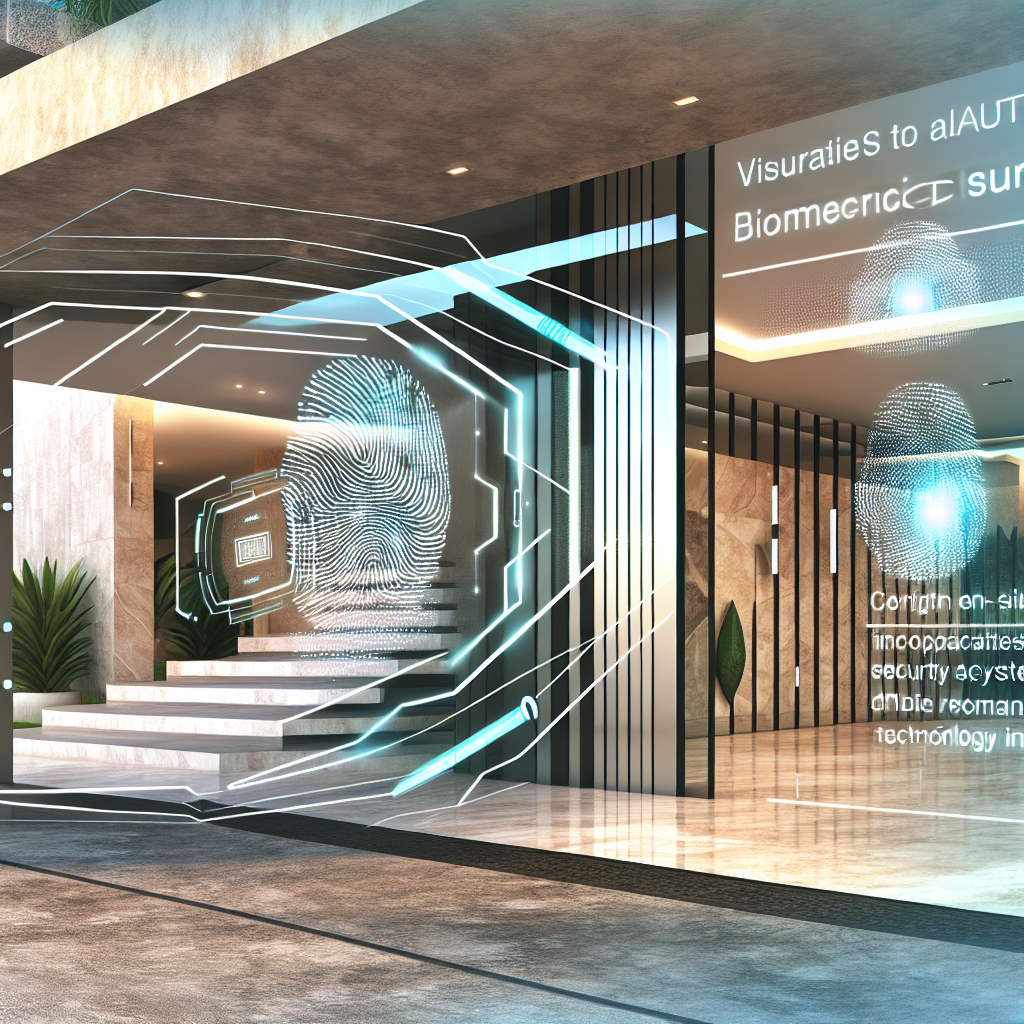Bespoke Biometric Security: Luxury Residences with DNA-Recognition Entry Systems
Experience the Future of Living: Where Identity Becomes the Key
The New Gold Standard in Luxury Living
The world of luxury living is constantly evolving, driven by relentless technological innovation, bespoke customization, and an unending pursuit of exclusivity. For the modern high-net-worth individual, luxury is no longer just about opulent interiors and premium materials—it now includes state-of-the-art security systems that offer not only protection but a futuristic, personalized experience.
Enter the era of DNA-recognition entry systems: the next frontier in biometric security and the latest status symbol in luxury living.
Biometric security has long been a hallmark of elite-level protection. From fingerprint scanning to retina recognition, these methods have created heightened levels of reliability and convenience. But as smart homes become smarter and security threats become more targeted and sophisticated, ultra-wealthy homeowners are now demanding even greater precision and personalization.
DNA: The Ultimate Key to Your Home
DNA-enabled entry systems synthesize individual genomic traits to authenticate residents and grant access. Unlike fingerprints that can be lifted or retinal scans that might be hacked, DNA is virtually impossible to replicate, making it the most secure form of human identification available. It is not merely technology—it is identity, rendered into infrastructure.
This is luxury redefined, with security so intrinsic to the individual that access control becomes simultaneously invisible and infallible.
Imagine walking into a penthouse in the sky or a private estate nestled in the hills without keys, cards, or devices. Access is granted purely through the essence of who you are—your DNA. A simple breath, strand of hair, or silent biometric scan verifies your identity in moments.
With affluent homeowners often holding confidential data, rare collectibles, or priceless art within their walls, this level of ultra-secure convenience enhances not only property protection but also peace of mind.
Science Meets Lifestyle: Breakthrough Studies & Innovations
The foundations of DNA-recognition security systems are built upon cutting-edge developments in the fields of forensic science, genomics, and artificial intelligence. Unlike traditional biometrics, DNA-based systems rely on identifying short tandem repeats (STRs) in an individual’s genome—sequences unique to every person that are stable, unchangeable, and impossible to replicate without genetic material.
One key study conducted by the National Institute of Standards and Technology (NIST) explores how advancements in Rapid DNA technology have cut the time needed to authenticate genetic material to under two minutes, a breakthrough that facilitates practical, at-home applications for identity verification.
The integration of this technology into connected home security systems allows for seamless, real-time validation without the intrusion or delay of traditional verification methods.
Recent developments by companies such as NEC and Parabon NanoLabs also highlight how far genomic identification technology has evolved. Parabon’s Snapshot DNA Phenotyping service, originally designed for forensic investigation, is now being adapted for luxury security purposes.
Their algorithm can reconstruct biometric identifiers—like facial morphology—from a DNA sample, which are fed into AI-controlled home intelligence systems that authenticate residents dynamically. Such technology is also being tested by high-security vault firms and next-generation safe developers.
Medical studies underscore DNA’s reliability. According to an article published in Nature Genetics, human DNA profiling can reach over 99.9999% accuracy when comparing genetic markers.
Combined with encrypted genomic storage and sophisticated privacy protocols, such reliability translates into unbreachable home environments. Tech developers are collaborating with privacy-focused firms to ensure DNA-based entry systems comply with HIPAA and GDPR standards, thereby minimizing bioethical concerns and ensuring that biometrics do not become liabilities in the digital age.
Living Smarter: Bespoke Security with AI Integration
In practical implementation, luxury security firms are pairing DNA-recognition access points with AI-powered smart home assistants. Once your DNA has been confirmed at the entry threshold, your home’s interior adjusts temperature, lighting, art displays, music, and preferences to your liking—a bespoke living experience tailored literally to the core of your being.
Additionally, multifactor DNA entry systems now incorporate continuous verification, allowing the system to detect and respond autonomously if unauthorized individuals attempt access or if a cloned DNA signal is generated.
The result is not just a security system—it is a sensorial concierge experience, driven by hard science and responsive technology.
Conclusion: Luxury Redefined Through Genetic Precision
DNA-recognition entry systems are transforming the notion of home security from reactive defense to proactive intelligence.
They reflect the pinnacle of personalization, security, and lifestyle sophistication, setting a new standard for the affluent who demand excellence in every detail of their home environment.
As biotechnology and luxury continue to intersect, these bespoke entry systems will not only protect but also define the residences of tomorrow.
References
- National Institute of Standards and Technology (NIST) – Rapid DNA Analysis
- Parabon NanoLabs – Snapshot DNA Phenotyping
- Nature Genetics – Human DNA Profiling
- NEC Advanced Biometric Research
- Genomic Trust & Privacy in Biometric Systems (GDPR/HIPAA Compliance)
Concise Summary:
The article explores the cutting-edge world of DNA-recognition entry systems, the latest innovation in luxury home security. These bespoke biometric systems use an individual’s unique genomic traits to grant access, providing unparalleled protection and a personalized living experience. Powered by advancements in forensic science, genomics, and AI, DNA-based security redefines the concept of luxury living through genetic precision.

Dominic E. is a passionate filmmaker navigating the exciting intersection of art and science. By day, he delves into the complexities of the human body as a full-time medical writer, meticulously translating intricate medical concepts into accessible and engaging narratives. By night, he explores the boundless realm of cinematic storytelling, crafting narratives that evoke emotion and challenge perspectives. Film Student and Full-time Medical Writer for ContentVendor.com




